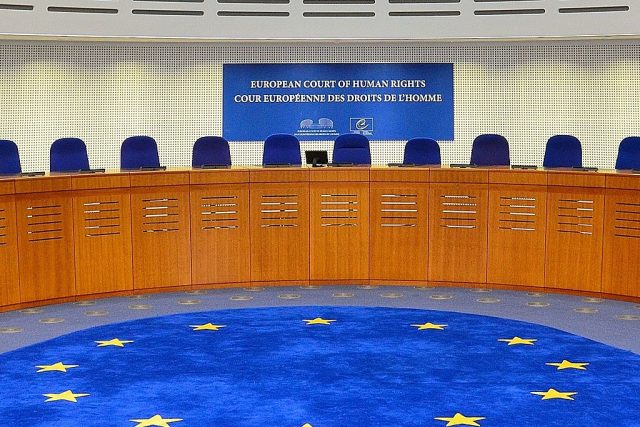In a nearly five-hour long hearing on Wednesday, the European Court of Human Rights (ECHR) heard a landmark case brought by six youth plaintiffs against 33 European governments to spur stronger climate change mitigation measures.Duarte Agostinho and Others v. Portugal and 32 Others featured six plaintiffs from Portugal: Catarina, 23, Cláudia, 24, Martim, 20, Mariana, 11, Sofia, 18, and André, 15. The youngest plaintiffs, Mariana and André, shared anxieties about the effects of climate change on the world as they grow up. In addition to Portugal, the group is suing Austria, Belgium, Bulgaria, Switzerland, Cyprus, the Czech Republic, Germany, Denmark, Spain, Estonia, Finland, France, the United Kingdom, Greece, Croatia, Hungary, Ireland, Italy, Lithuania, Luxembourg, Latvia, Malta, the Netherlands, Norway, Poland, Romania, the Russian Federation, the Slovak Republic, Slovenia, Sweden, Türkiye and Ukraine.The UK government’s representative, Sudhanshu Swaroop, began, speaking for the 33 governments that they all understand the severe nature of climate change. However, they all disagree with the procedural route the plaintiffs chose to take to adjudicate these claims. Swaroop emphasized that the plaintiffs “are asking the court to build a new model of extra-territorial jurisdiction, contrary to legal principals, with the effect that any person on the planet who claims to be affected by climate change could claim to be in the jurisdiction of each and every one of the respondent states.” Also, Swaroop highlighted the unique nature of bringing this lawsuit directly to the ECHR. Swaroop claims the plaintiffs did not “exhaust domestic remedies,” which would mean mitigation measures and damages received from the plaintiffs’ home state of Portugal, before seeking international remedies.The lawsuit highlights four ways that these governments contribute to climate change:(a) permitting release of emissions within national territory and offshore areas over which they have jurisdiction; (b) permitting export of fossil fuels extracted on their territory; (c) permitting import of goods the production of which involves release of emissions into the atmosphere; and (d) permitting entities within their jurisdiction to contribute to the release of emissions overseas, e.g. through their extract of fossil fuels overseas or by financing such extraction.While the plaintiffs recognize that these governments have taken some measures to address climate change with their membership in the Paris Agreement, an international treaty that seeks to limit global warming to only 1.5 degrees Celsius by 2100, the governments still add to total global emissions each year.One major event prompting the lawsuit by the six Portuguese plaintiffs was the record-breaking wildfires that occurred in Portugal in 2017 due to extreme heatwaves, which killed 120 people.The plaintiffs claim their rights are being violated under Articles 2 and 8 of the European Convention on Human Rights. Article 2 requires governments to have legal protections “against threats to the right of life,” while Article 8 prevents a government from interfering with an individual’s “right to respect for his private and family life, [and] his home.” Additionally, they argue that because of their young age, they will be disproportionately impacted by climate change effects in the future compared to older generations.An unprecedented 22 judges observed this hearing, demonstrating the historic nature of this case.




The Most Read
Сryptocurrencies
Bitcoin and Altcoins Trading Near Make-or-Break Levels
Financial crimes
Thieves targeted crypto execs and threatened their families in wide-ranging scheme
Financial crimes
Visa Warning: Hackers Ramp Up Card Stealing Attacks At Gas Stations
News
Capitalism is having an identity crisis – but it is still the best system
Uncategorized
The 73-year-old Vietnamese refugee is responsible for bringing Sriracha to American consumers
Uncategorized
Electric Truckmaker Rivian, Backed By Amazon, Ford, Raises Whopping $1.3 Billion